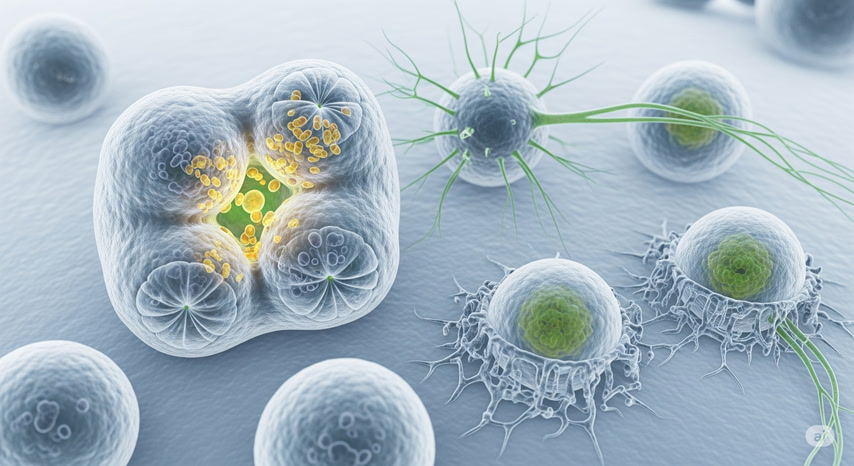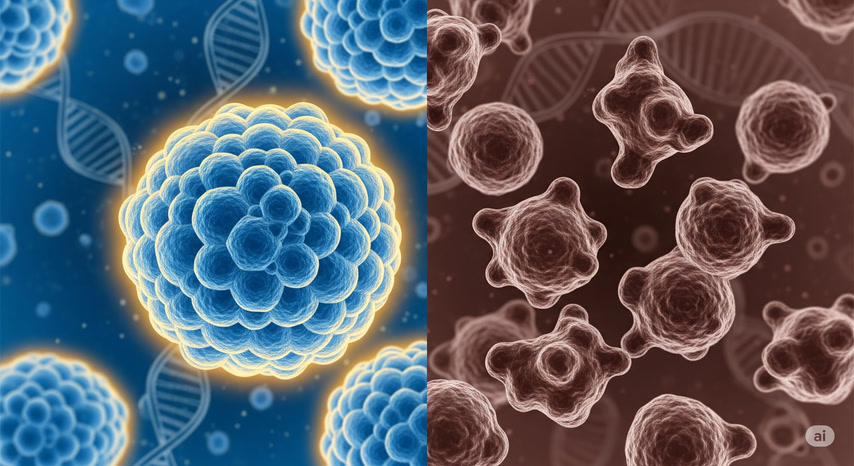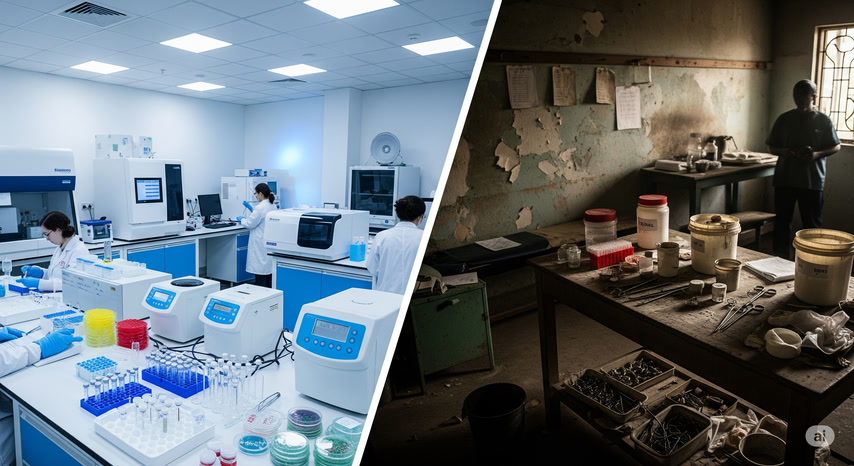Do Stem Cells Increase
Your Cancer Risk?
A transparent look at the science behind stem cell safety, addressing one of the most critical questions patients ask.

What Are Stem Cells?
Stem cells are unique cells in the body that have two key abilities: self-renewal (the ability to replicate) and differentiation (the ability to become other specialized cell types like nerve, bone, or cartilage cells).
These properties are why they are used in regenerative medicine, but also why some worry about uncontrolled cell growth.

Understanding the Cancer Connection
Cancer cells and stem cells share the ability to self-renew, and some cancers are believed to arise from mutations in normal stem cells.
However, the “cancer stem cells” found in tumors are not the same as the therapeutic stem cells used in clinical settings, which are highly purified, tested, and regulated to heal, not harm.

High-Risk Practices in Unregulated Clinics
Serious complications have been reported from unregulated clinics where cells lacked proper screening and preparation.
The issue wasn’t the stem cells themselves — but lack of screening, poor preparation, and unsafe administration. At SCTE, patients receive full documentation on cell source, viability, purity, and quality control standards — before any therapy begins.
Expert Insight from Dr. Yi Song
“Stem cells themselves do not cause cancer — unless they’re mishandled, mutated, or improperly sourced.”
— Dr. Yi Song, Ph.D., Pathology & Oriental Medicine
Have More Questions?
We believe in transparency and patient education. Our experts are here to provide clear, evidence-based answers.
Chat With Our Experts